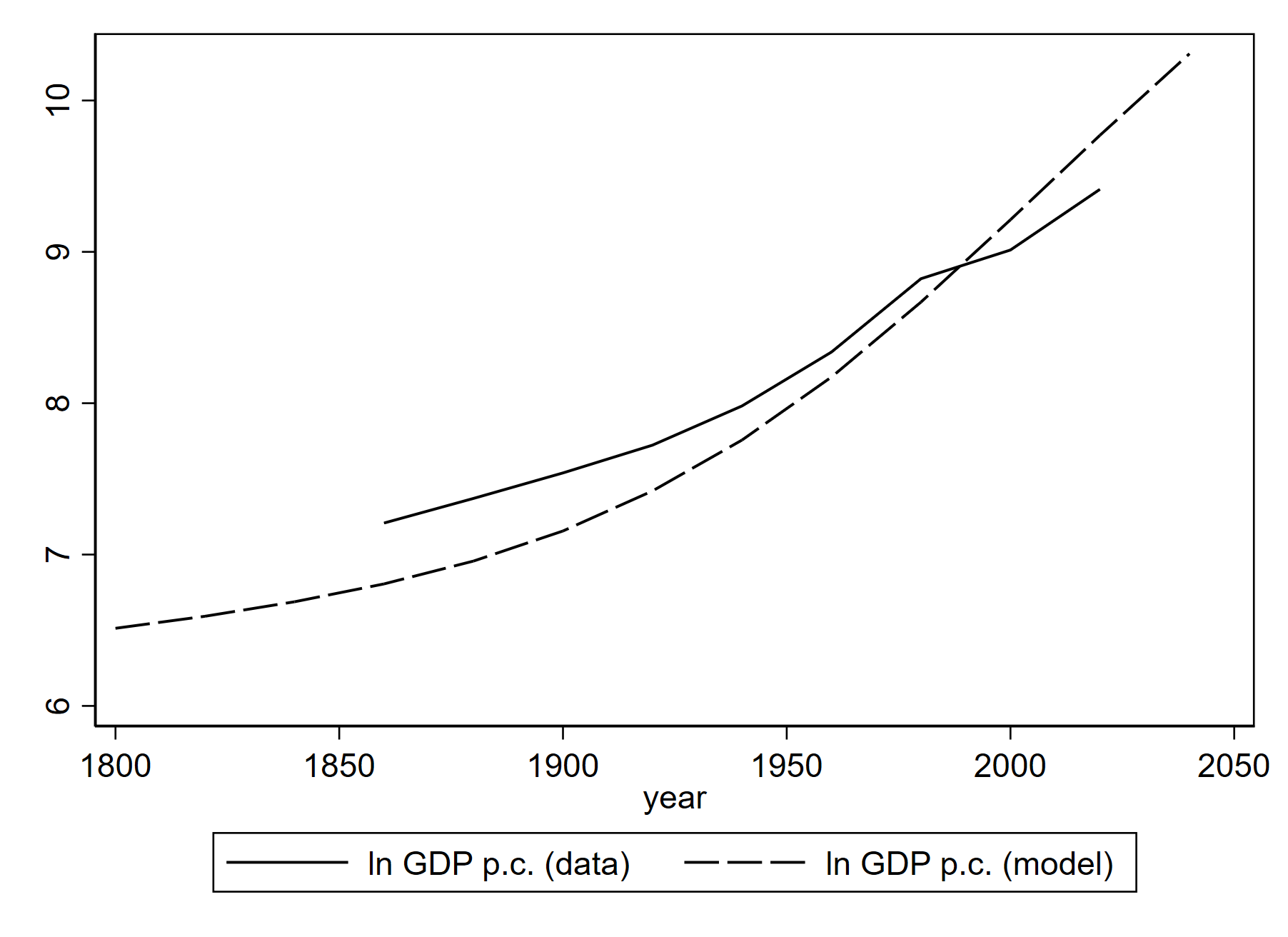- Учитель: Carla Mirabella
- Учитель: Friederike Reichel
- Учитель: Julian Zaiser
- Учитель: Alessandra Allocca
- Учитель: Andre Gorgulho Vasconcelos Costa
- Учитель: Hiroshi Kumanomido
Macroeconomics provides you with the core concepts and models used in macroeconomics. The focus will be on the basics for analyzing growth and business cycles. In contrast to bachelor-level courses, we will focus on micro-founded models of intertemporal choice. The course will cover some of the most important workhorse models of macroeconomics and we will study their implications for macroeconomic policy.
The course will have a lecture component and a tutorial component. Lectures and tutorials will take place on-site. Changes and news will be announced on LSF/Moodle. All material will be structured according to the chapters listed in the course content.

- Учитель: Nishan Lin
- Учитель: Uwe Sunde
- Учитель: Davide Cantoni
- Учитель: Moritz Leitner
- Учитель: Moritz Leitner
- Учитель: Martin Haas
- Учитель: Mirko Wiederholt
- Учитель: Ida Wikman
- Учитель: Isabel Gödl-Hanisch
- Учитель: Manuel Menkhoff
- Учитель: Mirko Wiederholt
- Учитель: Pascal Zamorski
- Учитель: Regina Dirnberger
- Учитель: Andreas Haufler
- Учитель: Jelena Todorovic
Die Mikroökonomik beschäftigt sich damit, das wirtschaftliche Verhalten
von Haushalten und Unternehmen zu analysieren und die Funktionsweise von
Märkten (und anderen Institutionen), in denen Haushalte und Unternehmen
interagieren, zu erklären. Die Vorlesung führt in die Grundlagen des
Faches ein, gibt einen Überblick über weitergehende Themen, die in
anderen Vorlesungen vertieft werden, und soll Ihr Interesse an Fragen
der Wirtschaftswissenschaft wecken.

- Учитель: Robin Mamrak
- Учитель: Marcel Quint
- Учитель: Klaus Schmidt
- Учитель: Helene Strandt
- Учитель: Julian Zaiser
- Учитель: Valeria Burdea
- Учитель: Klaus Schmidt
- Учитель: Jinju Rhee
- Учитель: Xuan Teng
- Учитель: Dominik Grothe
- Учитель: Matthias Lang
- Учитель: Amelie Grosenick
- Учитель: Johanna Rude
- Учитель: Claudia Steinwender
In this course, you learn to apply both microeconomic and macroeconomic theory as well as econometric methods to analyze fundamental questions regarding education and human capital. What are the long-term gains from education for the society and the individual? Why do people invest time, money, and other resources in education? How can we measure human capital? How can education be efficiently provided? Can education help to create a more equal society?
- Учитель: Caterina Pavese
- Учитель: Simon ter Meulen
Die Kurseinschreibung ist geschlossen. Es ist keine Teilnahme mehr möglich.
- Учитель: Hannah Fuß
- Учитель: Moritz Drechsel-Grau
- Учитель: Emanuel Hansen
- Учитель: Hiroshi Kumanomido
- Учитель: Claudia Pilizota
- Учитель: Shogo Sakabe
- Учитель: Juliette Fournier
- Учитель: Claudia Pilizota
- Учитель: Sebastian Hager
- Учитель: Fabian Waldinger
The strengthened internationalization of modern economies constitutes a new framework to public spending and revenue policies, creating new challenges for policy makers. This course analyses the incentives for and effects of state actions in an international setting. Topics include, among others, the theory of international public goods, optimal tariffs, strategic trade policy, and tax competition.
- Учитель: Keshav Choudary
- Учитель: Pascal Nieder
- Учитель: Yixuan Shi
- Учитель: Philipp Brewing
- Учитель: Fabrice Naumann
- Учитель: Claudia Steinwender
- Учитель: Dagmar Ehrhardt
- Учитель: Rebecca Lühlf
- Учитель: Andreas Roider
- Учитель: Jasmin Diemer
- Учитель: Andreas Haufler